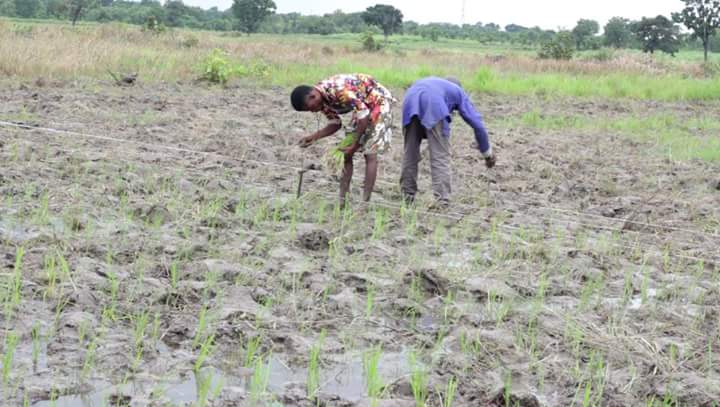-
About
- Our Work
- Get Involved
- Stay Updated
Water Conservation: Key to Sustainable Food Production
Do you know that an estimated 200 million people in sub-Saharan African (18% of the population) face serious water shortages all over the world?
Do you also know that approximately 70% of the worlds poor live in rural areas with little option but to rely on rain-fed agriculture to sustain their livelihoods?
The current challenge of meeting global food demand requires an increase in the level of agricultural water productivity and some increases in global water use.
Agronomic innovations discovering ways of saving water or using less drop per crop must become a mainstay of agricultural production at every level for both commercial and subsistence farming.
Suitable water conservation methods such as contour farming, mulching, strip cropping, mixed cropping and other methods of enhancing plant growth to ensure soil cover.
These agronomic practices help to minimise negative environmental impacts of drought such as soil erosion and desertification, whilst increasing crop yields throughout the year. Soil nutrients will only be used efficiently if a crop has sufficient water and water conservation can increase the volume of water available, bridging seasonal rainfall variability.
Water conservation contributes to Sustainable Intensification by allowing water to be used efficiently, resulting in higher agricultural production throughout the year and improved resilience to drought, improving farmers livelihoods and food security.
Combining water conservation with soil testing could help farmers gain a better understanding of the soil types in a specific location and ensure that the appropriate water conservation method is implemented. For example, when water drains out of the soil, essential nutrients such as nitrogen are also washed out. This problem is greater on light sandy soils, but can be reduced by adding compost. Manures or plant residues will eventually increase the amount of water a soil can retain.
 Farmers can be better equipped to select the correct methods of water conservation and prevent both a loss of soil moisture and nutrients with a combined understanding of their soils.
Farmers can be better equipped to select the correct methods of water conservation and prevent both a loss of soil moisture and nutrients with a combined understanding of their soils.Awareness of water conservation methods and their benefits is low among rural farmers who have little or no formal education, or access to educational materials to guide them on such practices. Numerous farmers are not reached by agricultural extension services or those services do not always address methods for rainwater conservation.
Further, national policies in many African countries generally do not provide sufficient incentives such as land rights to encourage farmers to invest in improved land and water management as experienced by most farmers in Africa where communal clashes are frequent between herdsmen and farmers.
Scaling-up outreach and extension services for locally designed water conservation plans would help to increase the uptake of water conservation measures in remote rural areas.
We can teach farmers at various local levels to adopt these practices to ensure increased crop yield and sustainable food production.
Photo Credit: SABI-AGRIK
About the author
Related Posts
Comments
No comments made yet. Be the first to submit a commentBy accepting you will be accessing a service provided by a third-party external to https://archive.ypard.net/
Get in touch
Email: [email protected]
YPARD Global Coordination UnitHosted by AGRIDEA and the Czech University of Life Sciences Prague
Lausanne, Switzerland and Prague, Czech Republic - Our Work

